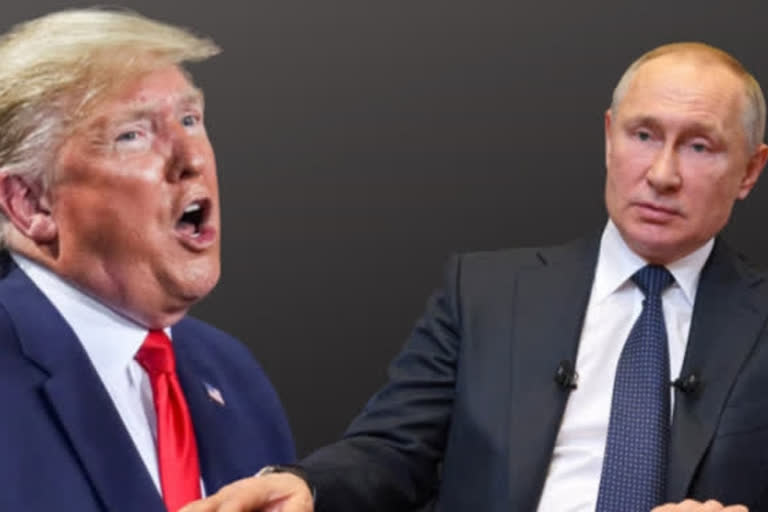Washington: The US and Russia on Friday rejected each other's proposals for potentially salvaging the last remaining legal constraint on their strategic nuclear forces.
President Vladimir Putin called for an unconditional extension of the soon-to-expire New START treaty, and the White House called that a non-starter. Adding an edginess to the diplomatic clash, President Donald Trump's national security adviser, Robert O'Brien, suggested the Russians rethink their stance before a costly arms race ensues.
Administration officials have previously alluded to building up nuclear forces if the treaty is abandoned, although the Pentagon has its hand's full paying for a one-for-one replacement of older nuclear weapons.
In the closing days of his reelection bid, Trump has looked for ways to boost his foreign policy record, and although he says he favours nuclear arms control, he has called New START flawed and unfavourable to the U.S. Last year he withdrew the U.S. from a separate nuclear arms treaty with Russia, and he waited until this year to begin engaging the Russians on the future of the New START deal.
Democrat Joe Biden, who was vice president when New START was negotiated during the Obama administration and ratified by the Senate, has said he would not hesitate to agree to Putin's original proposal for a five-year extension of New START. That would be followed by the negotiation of a follow-on deal.
The Trump administration recently proposed a one-year extension of the 2010 treaty, which is set to expire in February 2021, but it said this must be coupled with the imposition of a broader cap on U.S. and Russian nuclear warheads. The cap would cover warheads not limited by the New START treaty. Putin said Friday a one-year extension was okay but should not be conditioned on a wider cap on warheads.
Trump's lead arms control negotiator, Marshall Billingslea, blamed the Russians for missing what he called a historic opportunity.
The United States made every effort, he wrote on Twitter Friday, but the Russians backtracked on an agreement to cap the number of nuclear warheads of all kinds. Russian officials have denied they made any such agreement.
Read:Trump calls Russia bounties report another 'hoax'
The Trump administration's talk of a cap, or freeze, on all categories of warheads, has puzzled some U.S. analysts, in part because the number of those weapons has held steady over the past decade or so. William J. Perry, who served as defence secretary under President Bill Clinton, said Thursday, prior to Putin's latest remarks, that the U.S. freeze idea may be a domestic political gambit ahead of the Nov. 3 election.
I see no real significance to it," he said. "I can't see any rationale for it. The arms control effort is hampered in part by deteriorating trust between Washington and Moscow. Washington accuses Moscow of cheating and of aspiring to a nuclear buildup.
The Defense Intelligence Agency last year projected that Russia's overall stockpile of nuclear weapons would grow significantly over the next decade, driven by an increase in shorter-range, or non-strategic, weapons that are not governed by the New START treaty.
